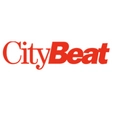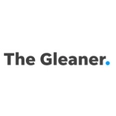Want to be seen here?
Connect your company to the marketplace for free.
Time for a display campaign? Ocast has gathered thousands of solutions in one place so you can get started quickly. Fill in the form and start receiving offers for campaign proposals.

The Norwalk Reflector is a newspaper in Norwalk, Ohio, published Monday through Saturday, except U.S. federal holidays, in Norwalk, Ohio, United States with a daily distribution of approximately 5,600...

Portsmouth Daily Times is a morning newspaper in Scioto County, Ohio with a print circulation of about 10,000. It was first printed in 1852 and printed Monday through Saturday, except Christmas Day. T...

The Salem News (formerly the Salem Evening News) is an American daily newspaper serving southern Essex County, Massachusetts. Although the paper is named for the city of Salem, its offices are now in ...

The Sandusky Register is a daily newspaper serving Sandusky, Ohio, as well as nearby Port Clinton and the Lake Erie Islands (collectively known regionally as Vacationland).The Sandusky Register has be...

Established in 1891, the Sidney Daily News is a five-day-per-week newspaper covering Sidney and Shelby County. The Sidney Daily News is the county’s top news source and also maintains social media pla...

The Springfield News-Sun is a daily newspaper published in Springfield, Ohio, by Cox Enterprises, which also publishes the Dayton Daily News. Both newspapers contain similar editorial content, but tai...

The Herald-Star is a daily newspaper based in Steubenville, Ohio.Its history began in 1806 with the founding of the Western Herald by William Lowry and John Miller. Miller, who left the paper to fight...

The News-Herald is a newspaper distributed in the northeastern portion of Greater Cleveland, Ohio, United States, serving Lake and Geauga Counties as well as a section of eastern Cuyahoga County. The ...

The Zanesville Times Recorder is a daily newspaper based in Zanesville, Ohio, that serves Muskingum County. The newspaper is part of the USA Today Network.On December 1, 1959, The Zanesville Times Rec...

The Suburbanite's family of newspapers that serve readers with the news and sports stories that hit closest to home. The Suburbanite covers Southern Summit County (Green, New Franklin, Coventry Townsh...

As a free weekly newspaper, website and mobile platform, Cincinnati CityBeat has served the Greater Cincinnati area since 1994 with cultural and political reporting, entertainment previews, food and d...

The Catholic Telegraph is a monthly magazine published by the Roman Catholic Archdiocese of Cincinnati primarily for its 500,000 congregants. The archdiocese covers 19 counties in Ohio, including the ...

Sun Newspapers was formed as a chain of weekly newspapers serving Northeast Ohio. Prior to a major reorganization in 2013, the chain consisted of 11 weekly newspapers serving 49 different communities ...

The Miami Student is the official student-published newspaper at Miami University in Oxford, Ohio, published weekly every Tuesday during the academic year. It claims to be the oldest university newspa...

The Cincinnati Enquirer is a morning daily newspaper published by Gannett in Cincinnati, Ohio, United States. First published in 1841, the Enquirer is the last remaining daily newspaper in Greater Cin...

The Lexington Herald traces its roots to 1870 and the Lexington Leader to 1888. Leader owner John G. Stoll bought the Herald in 1937; Knight Newspapers bought them in 1973. The papers merged Jan. 1, 1...

The Daily Independent is a morning newspaper covering the city of Ashland and surrounding areas of Boyd County, Kentucky. Previously published daily, the print schedule was reduced to five days a week...

The Henderson Gleaner (also known as The Gleaner) is the daily newspaper in Henderson, Kentucky. The newspaper is published Tuesday through Sunday mornings. It has not been published on Mondays since ...

The Messenger-Inquirer publishes seven days a week and is the primary daily newspaper serving Daviess, Hancock, McLean, Muhlenberg and Ohio counties in western Kentucky. The main office and production...

The Richmond Register is a three daily newspaper based in Richmond, Kentucky, and covering Madison County. It publishes Tuesday, Thursday and Saturday. The Register is owned by Community Newspaper Hol...
Display advertising, often referred to as banner advertising, involves visual ads placed on various websites, in contrast to text-based search ads that appear in search results on platforms like Google.
While search ads are focused on direct response, display ads aim at building brand awareness through engaging visual content like images or animations. Display advertising also enables retargeting, where ads are redirected to users who have previously visited your website, helping to keep the brand fresh in mind.
With opportunities to measure campaign performance and customize design and target audience, display advertising offers an attractive strategy for brands looking to enhance their online presence and effectively engage their target audiences.
The most effective formats and sizes for display ads vary depending on the platform and target audience, but here are some popular options:
Leaderboard (728x90 px): Positioned at the top of the page, this ad size captures visitors' attention right away.
Medium Rectangle (300x250 px): This size is flexible and can be placed in sidebars or embedded within content.
Large Rectangle (336x280 px): A larger variant of the Medium Rectangle that offers more visible space.
Wide Skyscraper (160x600 px): Often used in sidebars, offering a long, vertical ad space.
Mobile Leaderboard (320x50 px): Optimized for mobile devices and often placed at the top or bottom of the screen.
Consider adhering to industry standards and adapting ad format and size to the specific platform and your target audience. However, the emphasis should be on having well-thought-out content that engages and is relevant to your target audience with clear "Call to Actions" (CTA) to encourage clicks and conversions.
Measuring the effectiveness of your display advertising campaigns is crucial for evaluating the results of your campaign and for fine-tuning future marketing strategies. A first step could be to look over the Click-Through Rate (CTR), which represents the number of clicks your ad receives per view, providing an indication of the ad's engagement level. It is also important to track the conversion rate, which shows how many clicks are converted into desired actions such as sales or leads. Cost Per Conversion is another key indicator that helps you understand the cost-effectiveness of your campaign.
It may also be good to look at the impression rate, that is, how many times the ad has actually reached out and been displayed for brand-building purposes.
One of the major advantages of this type of advertising is its ability for audience targeting, where ads can be directed based on demographics, behavior, and retargeting, enabling a more personalized advertising experience. Moreover, with the use of various analytical tools, it becomes easy to track and measure the campaign's effectiveness by observing data on clicks, conversions, and views, which provides valuable insights.
However, display advertising also has its downsides. Ad blocking is one of the major challenges, where users can choose to block display ads, which in turn reduces the reach and effectiveness of your campaign. Ad fatigue is another downside, where ads that are shown too often can become irritating for the users, leading to decreased engagement and negative brand associations. Despite the ability for audience targeting, audience dilution can be a challenge if precise targeting is not used, which potentially leads to wasted marketing expenses. Additionally, the cost of display advertising can become significant, especially if the campaign is not well optimized to achieve desired results.
The cost of display advertising can vary based on several factors such as website, ad format, and target audience. Besides that, there are different pricing structures one can base on to adjust the cost according to the goal at hand. Below we list different pricing options for display advertising.
CPM (Cost Per Mille or Cost Per Thousand Impressions):
The price for 1000 views of your ad.
Often used for campaigns aimed at increasing brand awareness.
CPC (Cost Per Click):
The price you pay for each click your ad receives.
Used when the goal is to drive traffic to a website or increase interaction.
CPA (Cost Per Acquisition or Cost Per Action):
The price for each specific action or execution, such as a purchase or lead generation, that arises via your ad.
Used when the goal is conversions rather than just views or clicks.
CPL (Cost Per Lead):
The price for each lead generated through your ad.
Used in B2B marketing or for products/services with longer sales cycles.
CPV (Cost Per View):
The price for each viewing of a video ad.
Often used for video-based advertising campaigns.
Each pricing structure suits different goals and campaign types, and choosing the right pricing structure can help maximize the ROI for your display campaign.
Connect your company to the marketplace for free.
No commitments.